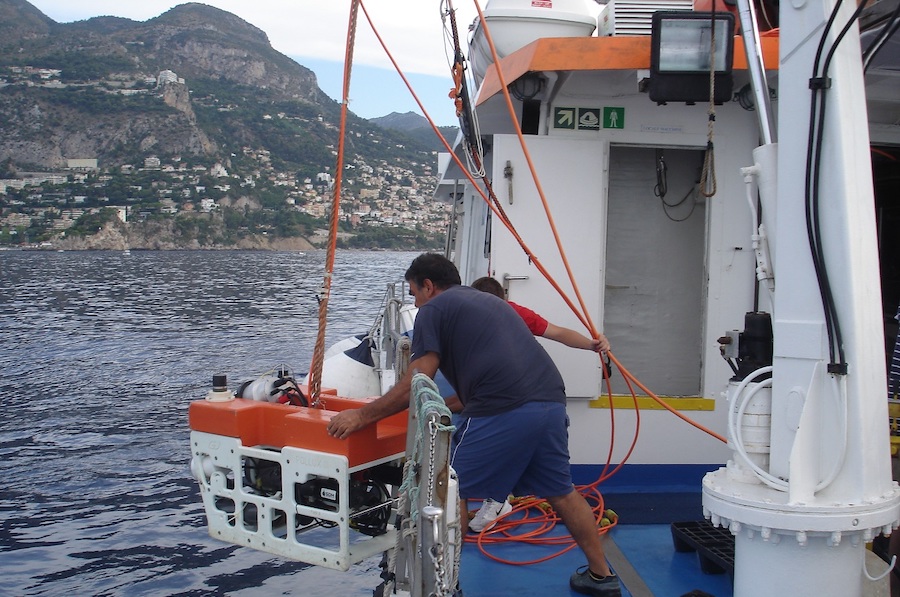Scientists from France, Monaco and Italy – the three signatory nations of the RAMOGE Agreement – are about to embark on deep sea exploratory work after two years of postponements due to the pandemic.
RAMOGE, the international cooperation agreement for the preservation of the coast and the marine environment between the countries of France, Monaco and Italy for the area between Marseille and La Spezia, will be boarding the ISPRA2 oceanographic vessel L’Astrea next month to carry out their latest campaign.
L’Astrea is fully equipped with a multi-beam sonar and an ROV that can descend to a depth of a thousand metres. The vessel will make it possible to explore five specific deep coastal sites.
Amongst the sites it will visit between 7th and 11th September are the coral reefs of Bergeggi off Savona and the Bordighera Canyon in Italy, followed by a stop in the Principality to study the deep rocks of Larvotto where they will observe the various gorgonians and sponges living there. This step in the journey is important as a follow up to take inventory seven years after the first group of RAMOGE scientists visited the area to gauge the evolution of the species harboured there. The mission will then move onto France where they will explore canyons off the coast of St Jean-Cap Ferrat and the Iles de Lérins.
The RAMOGE exploration campaigns aim to record the conservation efforts and outcomes of the deep-sea environments and to identify the pressure being placed on these sites. The processing of data collected during these campaigns contributes significantly to increasing knowledge of these deep water environments, still largely unknown, in order to create unified management plans to ensure their protection.
The RAMOGE exploration programme is part of the Convention for Biological Diversity, which defined areas of ecological or biological importance (EBSA) in 2014. The RAMOGE Agreement area is particularly notable as since scientists were able to identify 66 sites of specific interest in the region.
The first RAMOGE campaign involved studying the coastal areas in 2015, followed by a 2018 mission into the deep-water zones. This study, the third, which was postponedtwice due to the health crisis, will see the evolution of the sites four years after the last exploratory delegation’s visit.
